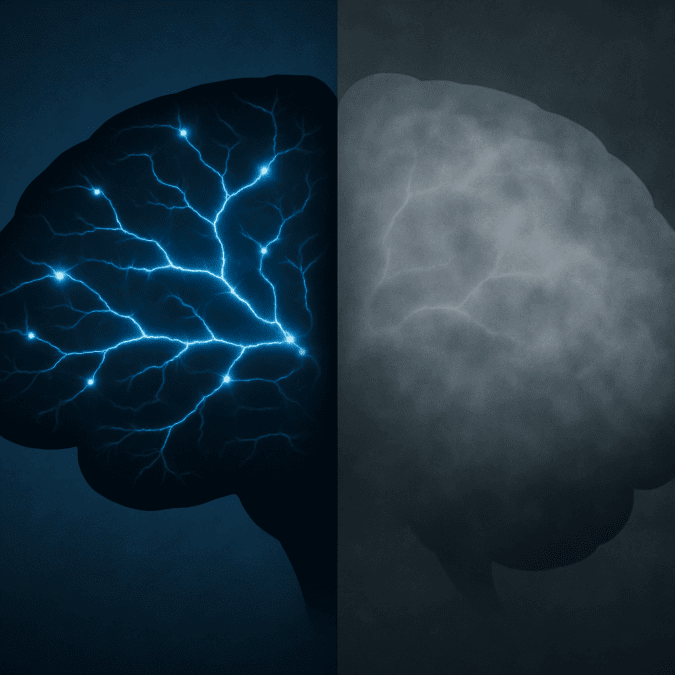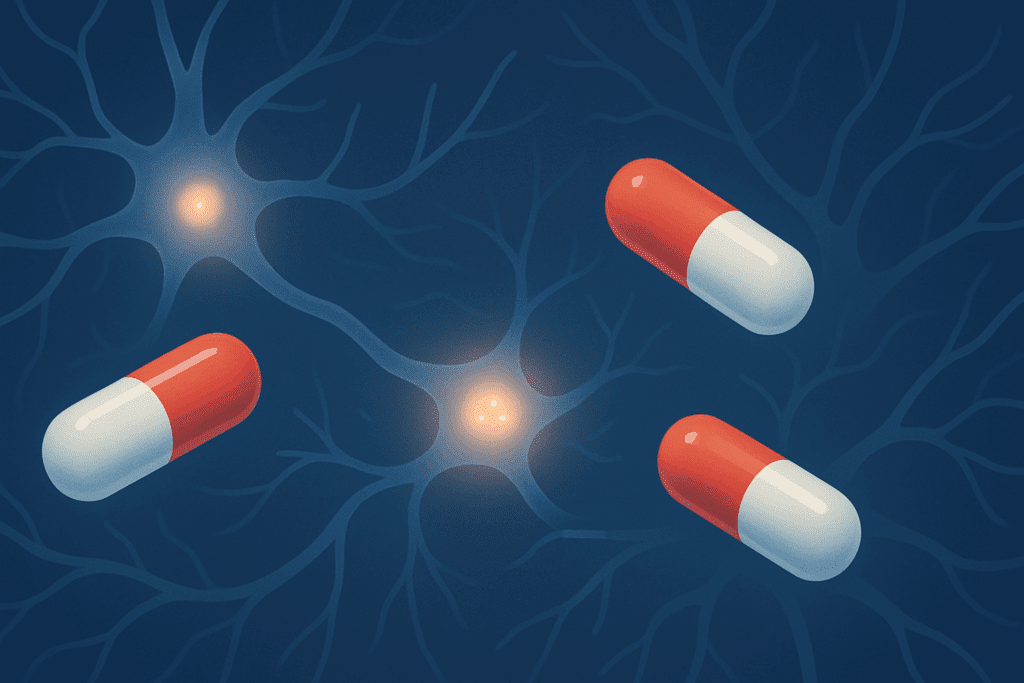Understanding Mild Cognitive Impairment and Its Growing Relevance
Mild cognitive impairment (MCI) is more than just an occasional lapse in memory. It is a clinically recognized condition that straddles the line between normal age-related cognitive decline and the more serious deterioration seen in conditions like Alzheimer’s disease. Individuals diagnosed with MCI often notice changes in memory, language, attention, or problem-solving abilities that go beyond typical forgetfulness, yet they are still able to maintain most of their daily activities independently. As the population ages, the global prevalence of MCI has surged, creating an urgent demand for safe, evidence-based cognitive decline treatment strategies.
You may also like: How to Choose the Best Brain Supplements for Adults: Science-Backed Ingredients That Support Focus, Memory, and Mental Clarity
The stakes are high: MCI not only affects quality of life, but it can also compromise a person’s ability to make sound decisions. In an age where maintaining mental clarity is key to autonomy and well-being, understanding what science says about effective medication for mild cognitive impairment is more important than ever. With increasing attention from researchers and clinicians, MCI is now recognized as a potentially modifiable condition—especially in its early stages. While not every treatment guarantees prevention of progression to dementia, several pharmacological and non-pharmacological strategies are showing promise in stabilizing symptoms and preserving decision-making capabilities.

How Mild Cognitive Impairment Affects Decision-Making and Cognitive Function
The defining feature of MCI is the measurable decline in cognitive domains such as memory, attention, executive function, and reasoning—capacities that are central to decision-making. Even subtle changes in these areas can make daily tasks such as managing finances, adhering to medication schedules, or navigating social interactions more difficult. For many individuals, this decline becomes most noticeable when decisions become more complex or time-sensitive.
One of the key distinctions between MCI and more advanced conditions like dementia is the preservation of functional independence. However, that does not mean decision-making remains unaffected. Executive function—an umbrella term encompassing planning, impulse control, and mental flexibility—can be compromised even in the early stages. A person with MCI may find themselves second-guessing choices or becoming overwhelmed by relatively straightforward tasks. Therefore, improving or stabilizing cognition through an appropriate cognitive decline treatment could directly enhance not just memory, but the broader faculties involved in rational thought and decision-making.
Current FDA-Approved Medications and Their Role in Treating MCI
As of now, there is no medication specifically approved by the U.S. Food and Drug Administration (FDA) for the treatment of mild cognitive impairment. However, several drugs have been explored off-label or in clinical trials for their potential to slow progression or alleviate symptoms. The most commonly studied medications for MCI are cholinesterase inhibitors such as donepezil (Aricept), rivastigmine (Exelon), and galantamine (Razadyne). These drugs were originally developed for Alzheimer’s disease, and they function by increasing levels of acetylcholine—a neurotransmitter linked to memory and learning.
Among these, donepezil has received the most attention. Some studies suggest it may temporarily stabilize cognitive symptoms in people with MCI, particularly those with biomarkers indicative of Alzheimer’s-related pathology. However, large-scale meta-analyses indicate that while cholinesterase inhibitors can produce modest improvements in cognitive testing, they do not prevent the eventual progression to dementia for most users. Nevertheless, their use may still be justified in certain cases where enhancing acetylcholine transmission provides short-term benefits to cognitive clarity and decision-making.
Another drug, memantine (Namenda), which works through a different pathway by modulating glutamate activity in the brain, has also been explored. While evidence supporting its use in MCI is less robust, memantine may be considered in cases where symptoms veer toward the more severe end of the MCI spectrum. Thus, while there is no definitive medication for mild cognitive impairment yet, these drugs form part of a broader pharmacological toolbox used with careful clinical judgment.

Investigational Treatments and Emerging Therapies
In recent years, a new wave of research has focused on disease-modifying therapies that go beyond symptomatic relief. This includes monoclonal antibodies that target beta-amyloid plaques—hallmarks of Alzheimer’s disease pathology. Drugs like lecanemab and donanemab, though currently approved for early Alzheimer’s disease, are being investigated for their potential use in patients with MCI who exhibit amyloid accumulation. These therapies aim to alter the underlying disease process, not just improve symptoms temporarily.
Another promising avenue involves neurotrophic factors and compounds that promote neuronal plasticity. Researchers are investigating how drugs like BDNF mimetics, which mimic brain-derived neurotrophic factor, could foster synaptic regeneration and enhance memory. Additionally, repurposed drugs such as metformin and lithium, known for their metabolic and mood-stabilizing effects respectively, are under exploration for their neuroprotective properties. These lines of inquiry highlight the growing recognition that effective cognitive decline treatment may require a multi-faceted approach that includes neuroinflammation, oxidative stress, and metabolic health.
The emerging field of precision medicine is also paving the way for more personalized cognitive interventions. Genetic screening, biomarker testing, and advanced neuroimaging techniques may soon allow clinicians to tailor treatments based on an individual’s unique neurobiological profile. While still in the experimental phase, these innovations represent the frontier of medication for mild cognitive impairment—offering hope that early, targeted intervention may one day change the trajectory of cognitive aging.
The Role of Nutraceuticals and Over-the-Counter Cognitive Enhancers
In parallel with pharmaceutical research, there is mounting interest in nutraceuticals—dietary supplements with potential cognitive benefits. While these are not classified as formal medications, some compounds have demonstrated effects comparable to those seen with traditional drugs, particularly when used as adjunctive therapies. Omega-3 fatty acids, for instance, have been associated with improved neuronal membrane fluidity and anti-inflammatory effects that may support memory and decision-making in older adults. Similarly, B-complex vitamins, especially B6, B9 (folate), and B12, are critical in reducing homocysteine levels, which are linked to vascular cognitive decline.
Another compound that has garnered scientific support is citicoline, a choline donor that enhances phospholipid synthesis and boosts acetylcholine levels. Clinical trials have shown that citicoline may improve attention, memory, and executive function in older adults with mild cognitive symptoms. Bacopa monnieri, a traditional Ayurvedic herb, has also been studied for its ability to enhance memory consolidation and processing speed.
Despite the popularity of these interventions, it is essential to emphasize that over-the-counter options should be evaluated with the same rigor as prescription medications. The quality, bioavailability, and dosage of supplements can vary widely. As such, healthcare providers must guide patients in making informed choices, especially when considering such products as part of a broader cognitive decline treatment strategy.

Non-Medication Approaches That Complement Pharmaceutical Treatments
While the search for an effective medication for mild cognitive impairment continues, evidence strongly supports the role of non-pharmacological interventions in slowing cognitive decline and improving decision-making. Cognitive training programs, which engage users in structured mental exercises designed to improve memory, reasoning, and speed of processing, have demonstrated measurable benefits in clinical settings. These improvements are not only seen on cognitive tests but also in real-world outcomes such as better financial management and medication adherence.
Physical activity remains one of the most robustly supported strategies for cognitive preservation. Aerobic exercise has been shown to increase hippocampal volume and improve neurovascular function, both of which are crucial in maintaining mental clarity. Resistance training may further enhance executive function, likely through its role in boosting metabolic health and reducing systemic inflammation.
Moreover, mindfulness meditation and stress-reduction practices can modulate brain areas involved in attention and emotion regulation. By reducing cortisol levels and enhancing prefrontal cortex activity, these techniques may provide subtle but meaningful improvements in mental sharpness and decision-making. When integrated with medication or supplement-based approaches, these lifestyle changes can offer a synergistic effect that supports holistic cognitive health.
Frequently Asked Questions (FAQ): Medication for Mild Cognitive Impairment & Cognitive Decline Treatment
1. Can lifestyle interventions enhance the effects of medication for mild cognitive impairment?
Absolutely. While medication for mild cognitive impairment can target biological processes such as neurotransmitter regulation or beta-amyloid plaque buildup, lifestyle choices often act as synergistic enhancers. Evidence suggests that regular physical activity—particularly aerobic exercise—increases hippocampal volume and supports better outcomes when paired with pharmaceutical cognitive decline treatment. Nutrition plays a similar role; the Mediterranean and MIND diets have been shown to delay cognitive deterioration when consistently followed. These holistic interventions not only complement medications but may also reduce the dosage required, mitigating long-term side effects.
2. What are some off-label medications being explored for cognitive decline treatment?
Off-label use of medications such as selective serotonin reuptake inhibitors (SSRIs), antihypertensives, and even certain anti-epileptics is gaining attention in the realm of cognitive decline treatment. For instance, low-dose lithium—traditionally used for bipolar disorder—has shown neuroprotective effects in small studies, possibly slowing neurodegeneration. Additionally, angiotensin receptor blockers (ARBs), normally prescribed for high blood pressure, are being studied for their potential to reduce inflammation and improve cerebral blood flow. However, the evidence remains preliminary, and such off-label use should only occur under strict medical supervision.

3. How does social isolation affect the efficacy of medication for mild cognitive impairment?
Social isolation is a critical yet underappreciated factor that can undermine the efficacy of any medication for mild cognitive impairment. Isolation has been linked to increased levels of cortisol and chronic inflammation, both of which can counteract the neuroprotective mechanisms of most pharmacological treatments. Social engagement, on the other hand, stimulates neuroplasticity and helps maintain executive function. Group cognitive training, community volunteering, and even regular phone conversations can significantly boost the positive effects of cognitive decline treatment plans. In this context, “treatment” should include not only pills but also people.
4. Are there emerging technologies that support or enhance medication-based cognitive decline treatment?
Yes, digital therapeutics and wearable technology are increasingly being integrated into cognitive decline treatment protocols. Devices that offer real-time cognitive training, track medication adherence, and even monitor biometric feedback like heart rate variability can provide actionable data. This information enables clinicians to fine-tune medication for mild cognitive impairment based on actual brain and body performance, not just lab tests. Some smartwatches are even equipped with sensors to detect sleep quality, which is critical for memory consolidation and often overlooked in cognitive treatment strategies.
5. What ethical considerations arise when prescribing medication for mild cognitive impairment in early-stage patients?
One key ethical issue is informed consent. Patients in early cognitive decline may have fluctuating capacity to understand risks, benefits, and long-term implications of treatment. Moreover, the use of medication for mild cognitive impairment may lead to unrealistic expectations about cognitive recovery, particularly if marketed aggressively. There’s also the question of equity—these medications can be expensive and may not be equally accessible to all socio-economic groups. Ethical practice demands transparency, psychological support, and a personalized risk-benefit discussion for every patient.

6. How do sex and gender differences influence responses to cognitive decline treatment?
Emerging research suggests that men and women may respond differently to both pharmaceutical and non-pharmaceutical cognitive decline treatment options. Estrogen levels, for instance, appear to modulate neuroinflammation and synaptic plasticity, which could explain some of the variability in treatment responses among post-menopausal women. Additionally, dosing for medication for mild cognitive impairment might require sex-specific adjustments to minimize adverse reactions and optimize benefits. Personalized medicine approaches, including pharmacogenomics, are increasingly being used to tailor treatment plans that reflect these biological distinctions.
7. Can gut health impact the success of medication for mild cognitive impairment?
Yes, gut-brain axis research reveals that gastrointestinal health can significantly influence brain function and medication efficacy. Gut microbiota modulate inflammation, neurotransmitter production, and even blood-brain barrier permeability. Certain strains of probiotics have been shown to improve cognitive scores when used alongside cognitive decline treatment. Furthermore, gut dysbiosis may alter how medications are metabolized, affecting their bioavailability. This insight has led to integrated protocols where clinicians recommend prebiotics and dietary adjustments alongside conventional pharmacological strategies.
8. What role does sleep architecture play in optimizing medication for mild cognitive impairment?
Sleep architecture—particularly deep slow-wave sleep—is vital for memory consolidation and neurotoxin clearance via the glymphatic system. If a patient suffers from fragmented sleep or sleep apnea, it can reduce the effectiveness of cognitive decline treatment. Medications like cholinesterase inhibitors, if taken at the wrong time of day, may even disrupt REM sleep, compounding the problem. Sleep tracking and cognitive behavioral therapy for insomnia (CBT-I) are increasingly recommended in tandem with pharmacologic interventions to ensure comprehensive care.
9. Are there risks in discontinuing medication for mild cognitive impairment once symptoms stabilize?
Yes, abrupt discontinuation can lead to rapid cognitive regression and behavioral disturbances. Some medications have a “withdrawal rebound,” where neurotransmitter levels destabilize, exacerbating symptoms. A tapering strategy, supervised by a neurologist or geriatrician, is essential when altering any cognitive decline treatment. Moreover, ongoing monitoring should continue post-discontinuation to assess for any relapse in symptoms. Long-term care planning should include alternative supports like cognitive therapy and caregiver training to maintain progress.
10. What future breakthroughs are expected in medication for mild cognitive impairment?
Advancements in precision medicine, particularly the use of AI to predict treatment outcomes based on genetic and epigenetic markers, could revolutionize how medication for mild cognitive impairment is prescribed. Biopharmaceutical companies are also exploring monoclonal antibodies and anti-inflammatory agents that go beyond neurotransmitter modulation. Additionally, drug delivery systems such as intranasal sprays and nanoencapsulation may soon offer more targeted and efficient therapeutic options. As our understanding of neural networks deepens, the frontier of cognitive decline treatment is poised to move toward highly individualized, integrative care.

The Importance of Early Detection and Continuous Monitoring
Timely identification of MCI is critical for maximizing the efficacy of any cognitive decline treatment. Unfortunately, many individuals with early symptoms remain undiagnosed due to stigma, lack of awareness, or misattribution of symptoms to normal aging. Early screening tools, such as the Montreal Cognitive Assessment (MoCA) and the Mini-Mental State Examination (MMSE), offer quick yet effective ways to detect early deficits. However, these tools should be supplemented with neuroimaging and biomarker analysis whenever possible, particularly in high-risk individuals.
Monitoring disease progression is equally important. Because MCI does not always progress to dementia, ongoing evaluation helps clinicians determine whether current treatments are effective or require adjustment. Wearable devices and digital health platforms are now being used to track behavioral and cognitive metrics over


